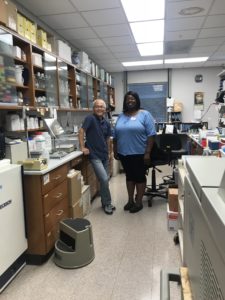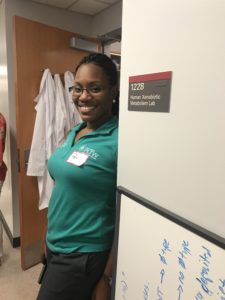Program Structure

During the summer program, teachers will be immersed in an authentic science research context working with a mentor scientist in the lab, and one day/week will participate in educational and outreach activities. Two key components of the program highlight teachers’ experiences during the program:
Mentored research experiences.
A centerpiece of the program is individual mentored research experiences in host labs from two biomedical research communities at North Carolina State University, the Center for Human Health and the Environment (CHHE), and the Comparative Medicine Institute (CMI).
Teachers will be integrated into genuine research projects and attend lab meetings, gaining knowledge of how research is conducted and specialized knowledge related to ongoing projects in their host lab. Each teacher will be paired up with a mentor scientist and hosted in the mentor’s lab for the duration of the PD program. By working alongside mentor scientists, teachers will gain specialized knowledge pertaining to ongoing environmental health research projects in their host labs, as well as practical, hands-on understanding of how scientific research is conducted.
Educational and outreach activities.
Additionally, each week, teachers will participate in educational and outreach activities with education specialists and scientists to enhance their knowledge in a variety of topics related to environmental health literacy, and learn how to translate the PD experiences into their classroom teaching.
The end of the program will culminate with a research event open to the public reflecting multiple aspects of training in the program. Teachers will present in a mini-symposium their research projects and related curriculum development.
Example of Summer Schedule: click here to access a copy of last summer’s project outline and dates.
